Search Results
Search
Filter results
Advanced Filters
Your search returned 883 Solutions
-

Teaching inclusivity for digital designers through customized video courses
Fable Tech Labs is a Canadian start-up that provides digital accessibility services delivered by people with disabilities. This offering has been complemented by "Fable Upskill" - video-based, customer-specific online training for businesses - since 2021. In 2022, Fable worked with 80 companies.
Fable Tech Labs, Fable Upskill, Canada -
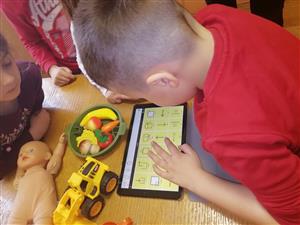
UNICEF-based technology project supporting young people with communication impairments
UNICEF's Giving Voice to Every Child: Southeast Europe project using Cboard, a free augmentative and alternative Communication, to support children with communication impairments. From 2019 to 2023 3,000+ children benifited.
Giving Voice to Every Child, Serbia -
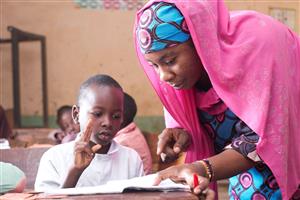
How to include regional DPOs in education programmes funded by international development agencies
Sightsavers' Inclusive Futures, Multiple Countries: Integrates children with disabilities aged 4-14 into mainstream schools across five countries. Led by organizations of persons with disabilities, enrolled 1,607 children in 2021 and 2022, modeling international development funding.
Inclusive Futures, Bangladesh -
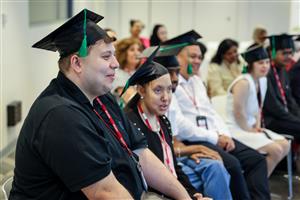
Vocational training for young people with intellectual disabilities in the Arab region
SEDRA Foundation's ‘Learn and Work’ Programme, UAE: Assists young people with intellectual disabilities in workforce transition. Offers hybrid learning and internships, concluding with a certificate from BUiD. In 2022, supported 25 individuals, with six securing full-time jobs.
Learn and Work Programme, United Arab Emirates -
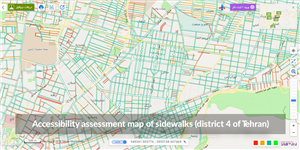
A 10-year plan for a metropolitan city making 10,000 km of sideways accessible
Urban Accessibility Plan in Tehran by Omran Zaveh Engineering Consultants: Started in 2019, focuses on improving accessibility in urban spaces. By 2023, 10% of Tehran's metropolitan area's accessibility implementation was completed.
Accessibility Comprehensive Plan for Urban Spaces in Tehran, Iran -
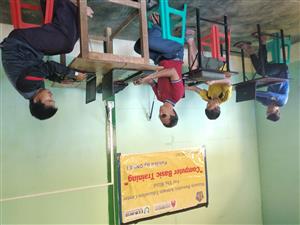
Building a tech infrastructure, training, and IT job creation for persons with visual impairments
Living Dignity for the Blind, Myanmar: Offers decentralized training for visually impaired individuals in remote areas. The program has expanded to several regions, with trained individuals finding tech-related jobs.
Promoting technology and capacity-building towards employment, Myanmar -
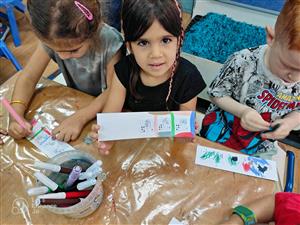
Training curricula and staff support to make mainstream kindergartens more disability inclusive
Krembo Wings, Israel: Youth movement supporting persons with disabilities. Developed training for educational teams in kindergartens, promoting inclusive discourse. Curriculum in Hebrew and Arabic expanded from four to twelve kindergartens between 2022 and 2023.
Krembo Kindergarten, Israel -
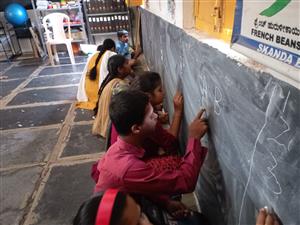
School-readiness programmes piloting government engagement in mainstream inclusive education
Fourth Wave's Schools Where All Belong, India: Supports children in 14 rural schools in Karnataka. Improved education access for over 60,000 children. In 2022, tasked with a training program for 30,000 participants.
Schools Where All Belong, India -
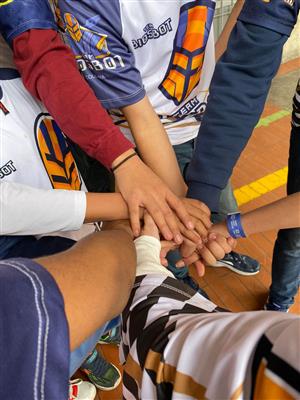
LEGO® robotics workshops improve team work and self-confidence of children with disabilities
Fundación Biosbot Robótica, Colombia: Focuses on inclusive education for children with Asperger’s, autism, and bullying victims using LEGO Robotics Kits. Since 2019, assisted over 150 children and 300 families, participating in national and international competitions.
Team Biosbot, Colombia -
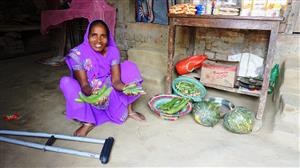
Inclusive organic agriculture farming for all, with approximately half being persons with disabilities
CBM cooperates with local partners across various states of India to train farmers, including people with disabilities, in organic farming and in supporting them by providing community loans for the procurement of equipment and livestock. By 2016 more than 11,000 farmers participated, 4,098 of whom were people with disabilities.
CBM - Christoffel Blind Mission India, India
- Page 1
- Page 2
- Page 3
- Page 4
- Page 5
- Page 6
- Page 7
- Page 8
- Page 9
- Page 10
- Page 11
- Page 12
- Page 13
- Page 14
- Page 15
- Page 16
- Page 17
- Page 18
- Page 19
- Page 20
- Page 21
- Page 22
- Page 23
- Page 24
- Page 25
- Page 26
- Page 27
- Page 28
- Page 29
- Page 30
- Page 31
- Page 32
- Page 33
- Page 34
- Page 35
- Page 36
- Page 37
- Page 38
- Page 39
- Page 40
- Page 41
- Page 42
- Page 43
- Page 44
- Page 45
- Page 46
- Page 47
- Page 48
- Page 49
- Page 50
- Page 51
- Page 52
- Page 53
- Page 54
- Page 55
- Page 56
- Page 57
- Page 58
- Page 59
- Page 60
- Page 61
- Page 62
- Page 63
- Page 64
- Page 65
- Page 66
- Page 67
- Page 68
- Page 69
- Page 70
- Page 71
- Page 72
- Page 73
- Page 74
- Page 75
- Page 76
- Page 77
- Page 78
- Page 79
- Page 80
- Page 81
- Page 82
- Page 83
- Page 84
- Page 85
- Page 86
- Page 87
- Page 88
- Page 89